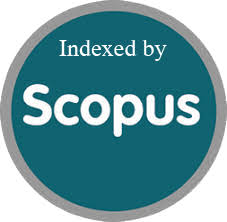Development of Incubator Analyzer Using Personal Computer Equiped With Measurement Certificate
(Noise and Airflow)
Abstract
Baby incubators are used for premature babies when babies are born prematurely. In order to ensure the accuracy of medical devices, periodic tests and controls are needed, which aim to reduce the risk of measurement. The baby incubator can be tested with a calibration device that is used to calibrate temperature, noise, humidity, and airflow so that the conditions remain stable and within normal limits. The purpose of this study is to develop a calibrator device based on a computer to measure noise and airflow parameters. The standard incubator analyzer is not equipped with a computer interfacing. Furthermore, it needs data processing via Excel. Therefore, in this study, an incubator analyzer device is proposed, which has four parameters to measure, namely, temperature, noise, humidity, and airflow. The main part of this design is the Atmega328 Microcontroller, in which the function is used as a data processor, equipped with Bluetooth communication and data storage. Furthermore, the output will be displayed in a computer unit. In this study, the noise was measured using analog sound Sensor V2; and have the most significant error at 37oC setting temperature that is equal to 0.17%. At the same time, the airflow parameter measured using an airflow sensor, type D6F-V3A01. Based on the measurement, the error was 0.5% at a temperature setting of 36oC and 37oC. The use of displays on personal computers and data processing using Excel allows users to monitor calibration and data processing. The feasibility of this device is proven. Therefore, this design can be used for baby incubator calibration.
Downloads
Copyright (c) 2020 Laily Nurrohmah, Dwi Herry Andayani, Andjar Pudji

This work is licensed under a Creative Commons Attribution-ShareAlike 4.0 International License.
Authors who publish with this journal agree to the following terms:
- Authors retain copyright and grant the journal right of first publication with the work simultaneously licensed under a Creative Commons Attribution-ShareAlikel 4.0 International (CC BY-SA 4.0) that allows others to share the work with an acknowledgement of the work's authorship and initial publication in this journal.
- Authors are able to enter into separate, additional contractual arrangements for the non-exclusive distribution of the journal's published version of the work (e.g., post it to an institutional repository or publish it in a book), with an acknowledgement of its initial publication in this journal.
- Authors are permitted and encouraged to post their work online (e.g., in institutional repositories or on their website) prior to and during the submission process, as it can lead to productive exchanges, as well as earlier and greater citation of published work (See The Effect of Open Access).





.png)
.png)
.png)
.png)
.png)
